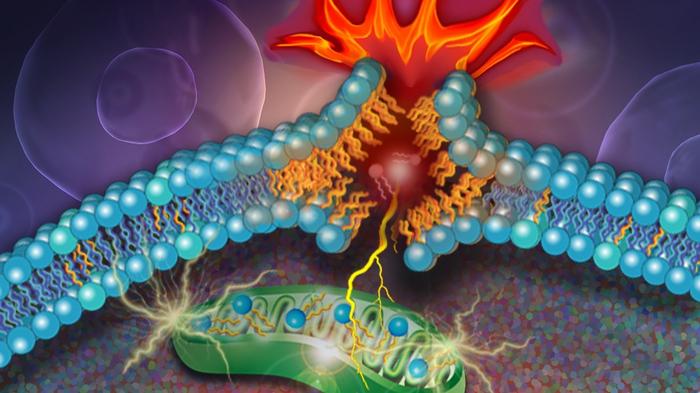Columbia researchers have found that a rare type of lipid is a key driver of ferroptosis, a form of cell death discovered by Columbia professor Brent Stockwell.

Credit: Nicoletta Barolini/Columbia University
Columbia researchers have found that a rare type of lipid is a key driver of ferroptosis, a form of cell death discovered by Columbia professor Brent Stockwell.
The findings provide new detail on how cells die during ferroptosis and could improve understanding of how to stop ferroptosis in contexts where it is harmfully occurring– in neurodegenerative diseases, for example– or induce it in contexts where it could be useful, such as using it to kill dangerous cancer cells.
The new research found that a rare type of lipid with two polyunsaturated fatty acyl tails, called a diPUFA phospholipid, was present in a range of contexts where ferroptosis was occurring, including in aging brains and Huntington disease-affected brain tissue. The finding indicates that the lipid is efficient at promoting ferroptosis.
The research was conducted by professors in Columbia’s Department of Biological Sciences, Department of Chemistry, and the Columbia University Irving Medical Center.
Stockwell first discovered ferroptosis in 2012, when he found that certain cells were dying because their lipid layers were collapsing– an unusual form of cell death that differs from the most common kind, which begins with the cell forming blisters on its outer surface. Since that discovery, researchers in Stockwell’s lab and elsewhere have continued to investigate ferroptosis, discovering that it can occur naturally in aging cells, in pathological contexts, and can be induced to treat disease. Another paper out this month with several co-authors found that a gene named PHLDA2 can sometimes promote ferroptosis by attacking a different lipid, and that this gene can block some tumors from forming. Together, these papers show that specific lipids promote ferroptosis, so defining the driver lipids in specific cancers is important.
“The discovery that these diPUFA lipids are important drivers of ferroptosis deepens our understanding of this form of cell death, and these lipids’ role in controlling a cell’s homeostasis in general,” Stockwell said. “Harnessing these lipids may eventually help us identify where ferroptosis has occurred and deliberately manipulate them to either induce cell death or stop it. This can begin to give us both understanding and the power to control cell death.”
Journal
Cell
DOI
10.1016/j.cell.2024.01.030
Method of Research
Experimental study
Subject of Research
Cells
Article Title
Phospholipids with two polyunsaturated fatty acyl tails promote ferroptosis
Article Publication Date
15-Feb-2024
COI Statement
B.R.S. is an inventor on patents and patent applications involving ferroptosis; co-founded and serves as a consultant to ProJenX, Inc. and Exarta Therapeutics; holds equity in Sonata Therapeutics; serves as a consultant to Weatherwax Biotechnologies Corporation and Akin Gump Strauss Hauer & Feld LLP. C.B. is now the associate scientific director at Virgo Health. The remaining authors declare no competing interests.




